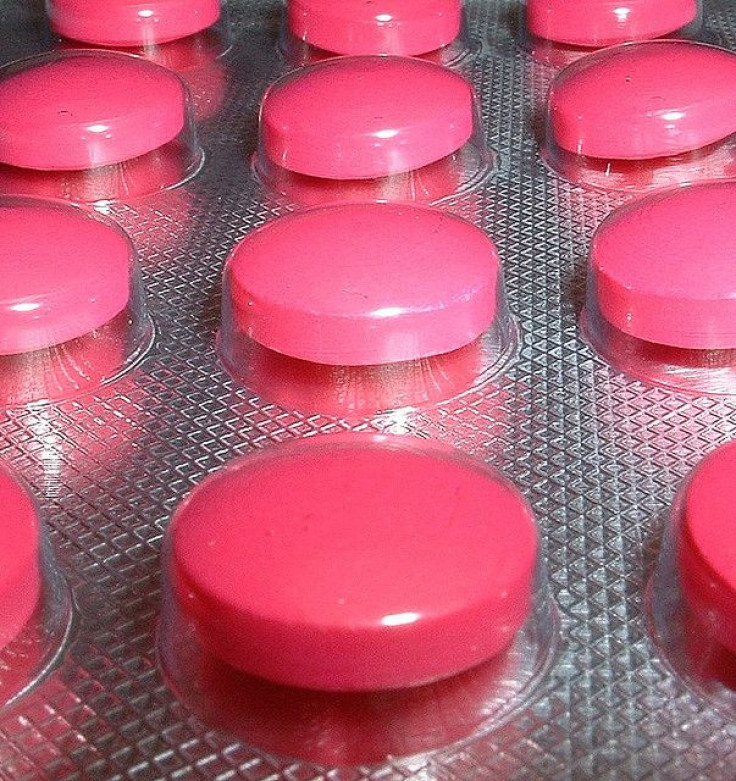Estrogen May Fend Off UTIs In Postmenopausal Women By Boosting Natural Antibiotics

Estrogen supplements may ward off urinary tract infections (UTIs) in postmenopausal women, according to a study in Science Translational Medicine that shows the sex hormone fortifies one's natural defenses against UTIs.
UTIs are the second most common type of human infection in the U.S., accounting for nearly eight million doctor's office visits per year. Women are four times more likely than men to contract a UTI, and one out of every four women will suffer from recurrent UTIs at some point in their life.
Menopause increases a woman's chances of having a UTI. The menopausal-induced loss of sex hormones, like estrogen, is thought to alter the internal lining of the bladder and urinary tract, making it more susceptible to invasion by bacteria. The bacteria Escherichia coli ("E. coli") is the most common cause of UTIs. Vaginal oestrogen cream lowers the occurence of UTIs in postmenopausal women when compared to placebo.
Despite clinical evidence that estrogen supplements reduce postmenopausal UTIs, little is known as to why this happens.
Swedish doctors, led by clinical bacteriologist Dr. Annelie Brauner of the Karolinska Institute, Stockholm, discovered two possible explanations for this phenomenon.
The Armory
First, the researchers found lower levels of naturally occurring antimicrobial proteins in the blood of postmenopausal women compared to menstruating women.
To see how this might impact UTIs, the investigators looked at the women's urine. When people urinate, they shed some of the cells that line the inside of the bladder and urinary tract. This lining is composed of "epithelial cells," the first barrier of protection from bacteria in the urinary tract that produces antimicrobial proteins.
The researchers found that estrogen supplements boosted the levels of three out of five common antimicrobials in epithelial cells excreted in the urine of postmenopausal women.
"Although the estrogen-mediated increase for each single peptide was relatively small," wrote the authors, "the simultaneous elevation of several peptides may produce a biologically relevant effect."
The postmenopausal women (16 subjects) were given a two-week regimen of Vagifem, an oral estrogen supplement used to combat the vaginal symptoms of menopause, including vaginal dryness, burning, and itching. They were compared against 18 mensturating women, aged 18 to 40, who were not given supplements, as they should already have normal levels of estrogen.
The Fortress Wall
Their second theory involved how bacteria surmount the physical wall created by epithelial cells in the urinary tract.
The authors suspected that E. coli bacteria can penetrate deeper into the urinary tract lining of postmenopausal women, which they thought could increase damage as well as one's risk for developing a recurrent infection.
Epithelial cells become smaller in size the deeper one goes into the lining, so one indicator of this UTI severity is the presence of smaller cells in the urine.
In a separate experimental group of women suffering from recurrent UTIs, Brauner and colleagues found that postmenopausal subjects excreted a greater number of small cells than menstruating women.
These observations suggested that menopause weakens the structural intergrity of the urinary tract lining, and the authors wondered if estrogen could reverse this process.
They took excreted epithelial cells from postmenopausal urine samples and grew them in petri dishes with and without estrogen supplements. Estrogen increased the productions of proteins that strengthen the physical bonds between individual cells.
In theory, this should fortify the lining of the urinary tract, but they couldn't directly examine this tissue in humans. Instead, they turned to a mouse model of menopause, where they found estrogen supplements block E. coli bacteria from penetrating the deeper layers of the urinary tract lining.
The authors recommend that further research be conducted to determine if estrogen supplements can prevent recurrent UTIs in postmenopausal women.
Source: Lüthje P, Brauner H, Ramos NL, Övregaard A, et al. Estrogen Supports Urothelial Defense Mechanisms. Science Translational Medicine. 2013.



























